Mandela at the heart of politics even after holding office
by Karima Brown
2013-12-06 00:51:00.0
NELSON Mandela, who often quipped that he had retired from retirement, handed over power after only one term in office in 1998.
But he remained an active participant in the life of the African National Congress (ANC) and wielded considerable influence as a sought-after elder who was not above pulling strings from behind the scenes.
In fact, when the party was facing the most difficult period during the Mbeki-Zuma war, many members sought out Mandela’s opinion and advice.
While Mandela was careful not to project his own preference into the discussions, he was able to read the winds of change and in a unique position to flag up the mood on the ground to a party leadership that did not hear the changes.
One senior ANC national exeutive committee (NEC) member recalls a conversation Mandela had with Thabo Mbeki shortly after he sacked Jacob Zuma as deputy president in June 2005.
"You are popular, but have you heard when this guy comes in how the roof comes down?" he asked Mbeki.
While Mandela’s tangle with Mbeki led to frosty relations between the two men, other key leaders and power brokers continued to seek his advice and turned to him especially during the bitter fight for control of the ANC after Mbeki axed Zuma from the Cabinet in 2005.
But Mandela knew that the value of his interventions turned on whether he could speak plainly and directly to everyone in the ANC.
"He never discredited what people told him. His mature leadership and guidance was underpinned by the fact that he was very direct and up front with people. Those coming to bear tales soon found that Madiba caught them out," an insider says.
Mandela’s reach extended not only to the ANC but also to government ministers who were often called to his home for a "chat" when he wanted to lobby them on important issues. Sometimes his house resembled a "second HQ", an ANC insider says. There were always leaders who sought his advice and needed his guidance, whether on matters of education, rural development or party politics.
The contact was reciprocated. People kept Mandela on the inside. He was in the loop over Zuma’s axing from the Cabinet by Mbeki. He was also informed of the ANC’s decision three years later to remove Mbeki as state president. On the first occasion, it was Deputy President Kgalema Motlanthe who turned to Mandela following Mbeki’s move against Zuma. Then the task fell to Zuma as the conduit of the NEC’s decision to strip Mbeki of his presidency. Some insiders say it was Mandela who argued against those in the movement who wanted Mbeki impeached, arguing that he be recalled instead.
Not all Mandela’s efforts to influence the party were welcomed, however. His 2002 foray into the internal affairs of the NEC under Mbeki’s leadership led to a horrible face-off with the committee. At the time, Mandela asked to address the NEC, where he tried to express concern over the lack of debate and openness in the party since Mbeki had taken the reins in the party and the country.
As has been reported, Madiba also used the opportunity to point out to party high-ups that Mbeki’s controversial position on HIV/AIDS was not widely supported and that the party’s messaging around the disease was problematic. But the NEC rebuffed the elder in a series of vicious attacks on his character.
"He never went back to the NEC after that incident," a one-time Mandela aide and NEC member says.
The former president continued to make his presence felt, however, and delivered a coup de grâce for Zuma when he endorsed the ANC during the 2009 election campaign by sharing the stage with Zuma at a rally in the Eastern Cape. This came at a time when many of the party’s former leaders split from the liberation movement to form the Congress of the People (COPE).
At the now-famous Dutywa rally, Mandela nailed his colours in a supposed COPE stronghold, while his daughter Makaziwe told the crowds that her father would die in the ANC, dispelling any notion that he would throw his weight behind the fledgling breakaway.
He made the same point himself — just in case anyone needed confirmation of his commitment.
"iANC mayiphile ngonaphakade," he said in isiXhosa. The message from the frail man lifted onto the stage was clear: the ANC should live forever.
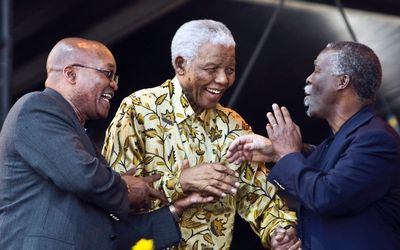
THREE LEADERS: Nelson Mandela celebrates his 90th birthday with then president Thabo Mbeki and African National Congress leader Jacob Zuma at Loftus Stadium in August 2008. Picture: GALLO IMAGES
NELSON Mandela, who often quipped that he had retired from retirement, handed over power after only one term in office in 1998.
But he remained an active participant in the life of the African National Congress (ANC) and wielded considerable influence as a sought-after elder who was not above pulling strings from behind the scenes.
In fact, when the party was facing the most difficult period during the Mbeki-Zuma war, many members sought out Mandela’s opinion and advice.
While Mandela was careful not to project his own preference into the discussions, he was able to read the winds of change and in a unique position to flag up the mood on the ground to a party leadership that did not hear the changes.
One senior ANC national exeutive committee (NEC) member recalls a conversation Mandela had with Thabo Mbeki shortly after he sacked Jacob Zuma as deputy president in June 2005.
"You are popular, but have you heard when this guy comes in how the roof comes down?" he asked Mbeki.
While Mandela’s tangle with Mbeki led to frosty relations between the two men, other key leaders and power brokers continued to seek his advice and turned to him especially during the bitter fight for control of the ANC after Mbeki axed Zuma from the Cabinet in 2005.
But Mandela knew that the value of his interventions turned on whether he could speak plainly and directly to everyone in the ANC.
"He never discredited what people told him. His mature leadership and guidance was underpinned by the fact that he was very direct and up front with people. Those coming to bear tales soon found that Madiba caught them out," an insider says.
Mandela’s reach extended not only to the ANC but also to government ministers who were often called to his home for a "chat" when he wanted to lobby them on important issues. Sometimes his house resembled a "second HQ", an ANC insider says. There were always leaders who sought his advice and needed his guidance, whether on matters of education, rural development or party politics.
The contact was reciprocated. People kept Mandela on the inside. He was in the loop over Zuma’s axing from the Cabinet by Mbeki. He was also informed of the ANC’s decision three years later to remove Mbeki as state president. On the first occasion, it was Deputy President Kgalema Motlanthe who turned to Mandela following Mbeki’s move against Zuma. Then the task fell to Zuma as the conduit of the NEC’s decision to strip Mbeki of his presidency. Some insiders say it was Mandela who argued against those in the movement who wanted Mbeki impeached, arguing that he be recalled instead.
Not all Mandela’s efforts to influence the party were welcomed, however. His 2002 foray into the internal affairs of the NEC under Mbeki’s leadership led to a horrible face-off with the committee. At the time, Mandela asked to address the NEC, where he tried to express concern over the lack of debate and openness in the party since Mbeki had taken the reins in the party and the country.
As has been reported, Madiba also used the opportunity to point out to party high-ups that Mbeki’s controversial position on HIV/AIDS was not widely supported and that the party’s messaging around the disease was problematic. But the NEC rebuffed the elder in a series of vicious attacks on his character.
"He never went back to the NEC after that incident," a one-time Mandela aide and NEC member says.
The former president continued to make his presence felt, however, and delivered a coup de grâce for Zuma when he endorsed the ANC during the 2009 election campaign by sharing the stage with Zuma at a rally in the Eastern Cape. This came at a time when many of the party’s former leaders split from the liberation movement to form the Congress of the People (COPE).
At the now-famous Dutywa rally, Mandela nailed his colours in a supposed COPE stronghold, while his daughter Makaziwe told the crowds that her father would die in the ANC, dispelling any notion that he would throw his weight behind the fledgling breakaway.
He made the same point himself — just in case anyone needed confirmation of his commitment.
"iANC mayiphile ngonaphakade," he said in isiXhosa. The message from the frail man lifted onto the stage was clear: the ANC should live forever.


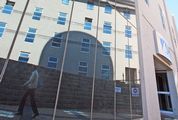
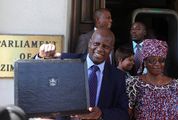
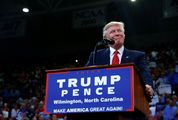
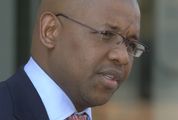




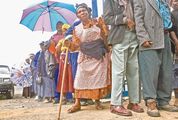
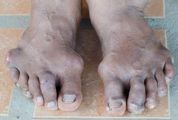
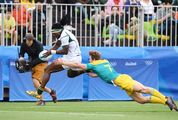
 News and views on the death, and life, of former president Nelson Mandela
News and views on the death, and life, of former president Nelson Mandela










